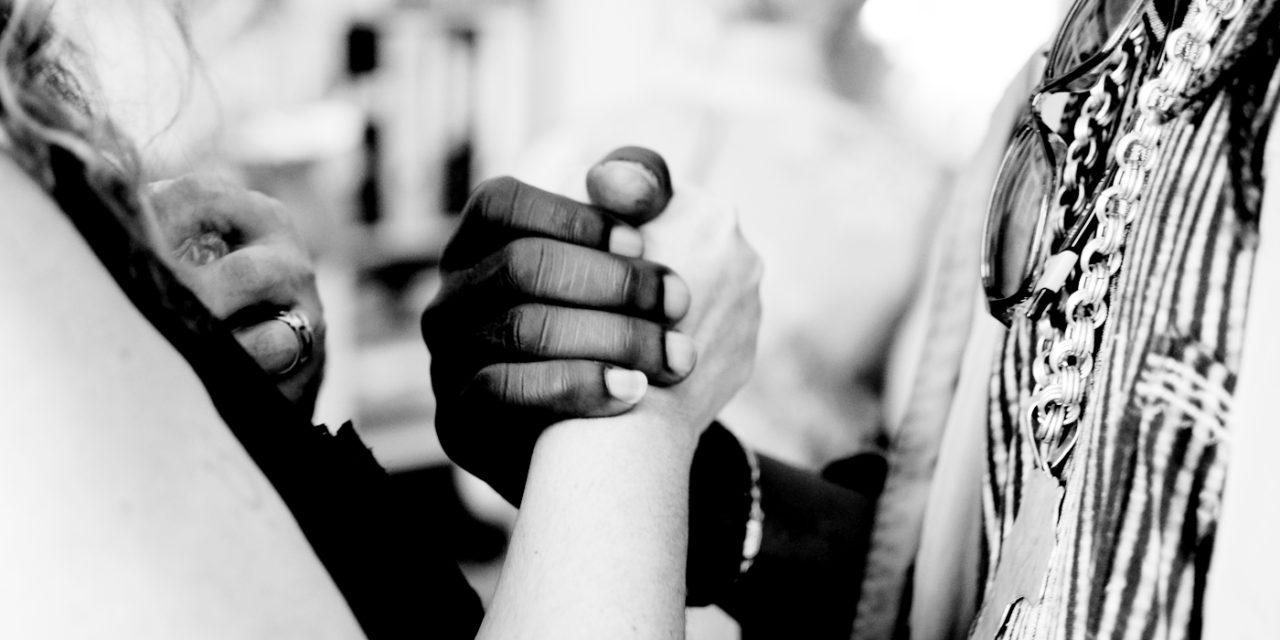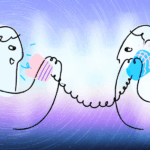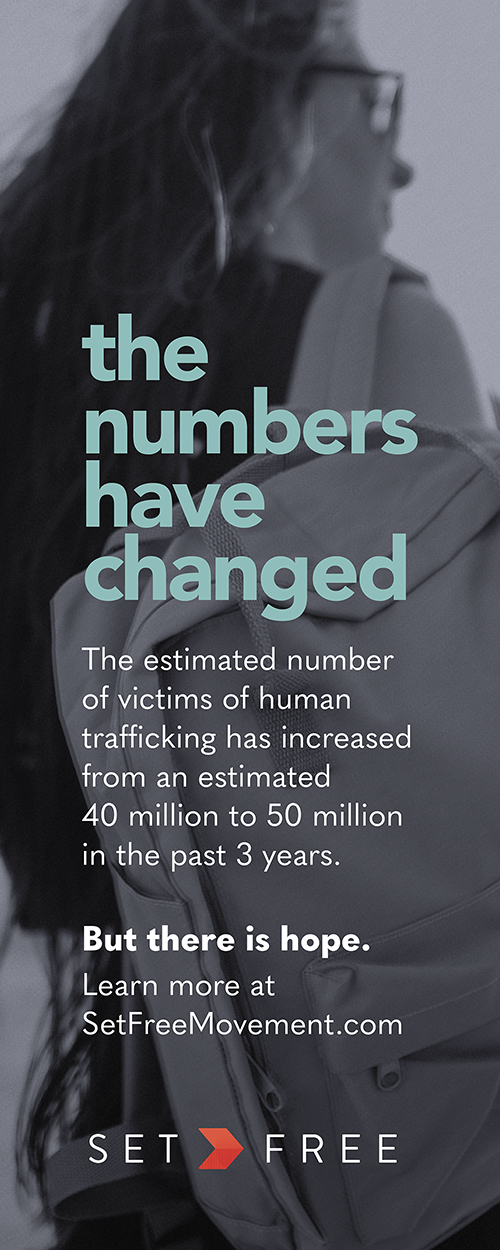Eric S.
Eric S. is the Asia Area director for Free Methodist World Missions. Eric oversees the FMWM missionary team in Asia and partners with national leaders to build support strategies that will help expand the church. He also works to purposefully connect the church in Asia with the Free Methodist Church – USA, building partnerships and relationships that will be mutually beneficial. Eric and his wife, Virginia, have served the Free Methodist Church since 1990. Click here to learn more about them and to support them.
By Eric S.
“It’s a worldview issue, isn’t it?” said my African colleague.
He and I were together at our annual cohort module for our academic research. Abdou (not his real name) was responding to my question. Working on the matter of unhealthy dependence seen in some mission fields, I wondered out loud how some groups could ever not be in need. I leaned in as he explained. “In the West, success is measured by the ability to say, ‘I do not need anything from anyone. I can take care of myself. I am independent. I do not need anyone or anything from anyone.’”
While most of us would undoubtedly affirm our need for others, would we be willing to confess the spirit of independence that drives our individualistic culture in dramatic contrast to much of the rest of the world? Collectivist cultures value the health of the group as much as the health of the individual. “The needs of the many outweigh the needs of the few, or the one,” as Spock would say.
Spock is not alone. And neither were we intended to be alone. We are better together. As Chuck Swindoll has noted, the first time God ever said something was not good was in the garden, just before he created a companion for Adam (see Genesis 2:18). Moving forward through Scripture, we are reminded repeatedly that we are created as relational beings, interdependent and better together. The definitive passage for interdependence, in my opinion, is 1 Corinthians 12. You know the one: “The eye cannot say to the hand, ‘I don’t need you!’ And the head cannot say to the feet, ‘I don’t need you!’”
Maybe we could build upon Paul’s analogy to reinforce the point:
“For we were all baptized by one Spirit so as to form one body — whether Jews or Gentiles, Chinese or Nepali, Mexican or Egyptian, slave or free — and we were all given the one Spirit to drink. Even so the body is not made up of one part but of many. Now if an American should say, ‘Because I am not gifted with hospitality like a Filipino, I do not belong to the body,’ it would not for that reason stop being part of the body. And if the Burmese should say, ‘Because we have not as many Christians as the Indian church we do not belong,’ it would not for that reason stop being part of the body. If the whole body were from Asia, where would the sense of African jubilation be? If the whole body were Canadian, where would the deep sense of history and tradition from Europeans be? But in fact God has placed the parts in the body, every one of them, just as he wanted them to be. If they were all one part, where would the body be? As it is, there are many parts, but one body. The Cambodian cannot say to the Vietnamese, ‘I don’t need you!’ And the Jordanian cannot say to the Japanese, ‘I don’t need you!’”
You get the idea. We need one another. We are better together. Our differences should not divide us. Instead, our differences should enhance the mission’s effectivity. When as Christians, we love each other across cultural barriers, language barriers, and even geopolitical barriers, we show the world by our “oneness” that the Father has sent the Son! We proclaim the gospel powerfully by working together interdependently.
We were never intended to be independent. One could say we were created to be dependent —upon God, upon one another. Perhaps it is better said that we were created to be interdependent, for our identity’s true nature is discovered only after we first ask, “Who is God?” Then we may ask in light of that understanding, “Who am I?” And finally, “Who is my neighbor?” We must always begin with a Trinitarian understanding of God, who exists in a kind of interdependent relationship. C.S. Lewis, in his masterpiece “Mere Christianity,” referred to this as a great cosmic dance:
“The whole dance, or drama, or pattern of this three-Personal life is to be played out in each one of us: or (putting it the other way round) each one of us has got to enter that pattern, take his [or her] place in that dance. There is no other way to the happiness for which we were made.”
It is into this great dance that humankind is invited, both to reflect the joy, the glory, and even the image of God (theologians call this the imago Dei) and to participate in his ever-extending, inviting, sending nature (this mission of God is called the missio Dei). We see the timelessness of this loving, gracious invitation to every believer to reflect God’s image and participate in God’s mission clearly in Jesus’ prayer recorded in the Gospel of John. “I do not ask for these only, but also for those who will believe in me through their word, that they may all be one, just as you, Father, are in me, and I in you, that they also may be in us, so that the world may believe that you have sent me” (17:20–21 ESV). I think we see interdependence here.
Within this dance, we affirm both our individuality and mutuality — our interdependence — as members of the body of Christ worldwide, contributing to one another and the whole. Followers of Jesus do well to join this dance and extend the same invitation to the world. We are better together.
We are interdependent and united in mission. We are better together. Boundaries, borders, cultures, languages, gifts, and preferences provide us with an opportunity to enjoy the beauty of God and His created order. But these were never meant to divide us or to keep us from working together, for together we are much more effective for the kingdom than we are separate.
When we understand the beautiful uniqueness of others, when we see the image of God in them and realize their tremendous value to the Father, we behave differently toward them. We stop seeing people as “less than” for reasons arising from the human perspective, and our desire for reaching the lost with the gospel is fueled. Our sense of respect and honor for His image in our brothers and sisters calls us to a better place. When I forget His image in you, I step back into a kind of brokenness again, a place of self-promotion and self-protection, desiring to protect my territory, my ministry, my mission. We really must prioritize relationships of mutual love and respect if we are to advance God’s kingdom mission around the world.
The priority of loving others reminds us, reminds local churches, and should remind church organizations of the Great Commission’s primacy. The organization is never the goal. The goal is love for God and love for people. The organization is secondary. Organizations should act as an accelerant to the work of the Holy Spirit on mission. An organization’s form and existence should be subservient to God’s mission. Our own denominational family encourages us to ensure that structures serve the mission; ministry should never serve to perpetuate the structure. Structures are not the end goal.
In fact, missio Dei reminds us of these foundational truths: the kingdom work in which I participate is not my mission, nor is it our mission, but it is God’s mission, and we are invited to join with Him in it.
Position and power are not the goals, although it is our great temptation to seek them. Even the local church is not the end goal. As missiologist Charles Van Engen has put it, “The local church does not exist for its members, rather the members are the church, who exist to participate in the mission of God.”
God’s mission flows from the heart of the Trinity, where there is perfect fellowship, perfect love, and the glory of God. From Genesis to Revelation, He is accomplishing His mission. Consider how everything changes if I no longer focus upon my personal mission but simply align myself with God’s mission.
One of our most significant, highest potential contributions to this great invitation to be reconciled to God has to do with how we relate to one another, whether in love and grace or impatience and intolerance. Unity was meant to be a missional testimony. In the prayer of John 17 mentioned above, Jesus prayed an incredible prayer for unity for every believer who would ever live. What does it mean to be one? One with Jesus, one with the Father, one with each other. Being one does not mean we must always agree. Unity does not necessarily demand uniformity. Unity does, however, refer to a commonality — we are each called to bear His image and are invited to participate in His mission. Ethnicity, geographic location, or financial status does not diminish our dignity (because of His image) nor limit our ability (because we are all invited and gifted) to contribute to God’s mission and the lives of others.
A concern for dependency is often expressed when talking about developing mission fields. I would suggest to you again that we were created with an intended kind of dependency. As we grow older and wiser in life and ministry, we realize that independence is an illusion. Not only are we dependent upon the Savior, but we are also dependent upon one another. The issue here is not dependence, per se, but unhealthy dependence. I believe that the biblical solution is not independence — teach them to do it on their own — but interdependence. We should be doing it together. When we put ourselves, our churches, our countries on the road to independence, we risk cutting ourselves off from the rest of the body, sacrificing the missional unity Jesus intended.
One of the blessings of being committed to a local church is learning how to love people we don’t like. We learn how to receive from them. We learn to see them through His eyes, and we see what they have to offer. Even this posture forms a kind of interdependence in the community of faith.
Some of us think this kind of unity is too hard. But the type of unity that protects the diversity and beauty of cultural uniqueness and the image of God in every person — and finds commonality in the shared life of Christ — is worth the effort. Bearing His image and participating in God’s mission together is the priority.
We get easily distracted from the mission by focusing upon all that we do not have. This distraction is a concern all over the world. We become convinced that the mission cannot go forward without more money, more buildings, more leaders — and in fact, it cannot, when we see the mission as our mission.
It is God’s mission, and Jesus has given to His interdependent body all that we could ever need to participate in it (see Matthew 6:31–33, 2 Corinthians 9:8, Philippians 4:19, 2 Peter 1:3). We are better together (see Romans 12:3–8).
My goal for the work in which I’m privileged to share internationally is not to help my friends become independent. Working alongside brothers and sisters in Christ, I’ve come to realize how much I need them. I am a better Christ-follower because of our relationships. My goal is to honor the image of God in them and find ways to open doors for mutual contribution to God’s mission worldwide. I believe we are better together.
What about you? Have you missed seeing God’s image in someone? Or perhaps in an entire people? Has it changed the way you respond to them? Could this be a moment to reflect upon your own need to change the way you see your world?
My friend Abdou was right. It is a worldview issue, and I do need others in order to become all God meant for me to become. I am interdependent, and we are better together.+
Eric S.
Eric S. is the Asia Area director for Free Methodist World Missions. Eric oversees the FMWM missionary team in Asia and partners with national leaders to build support strategies that will help expand the church. He also works to purposefully connect the church in Asia with the Free Methodist Church – USA, building partnerships and relationships that will be mutually beneficial. Eric and his wife, Virginia, have served the Free Methodist Church since 1990. Click here to learn more about them and to support them.









